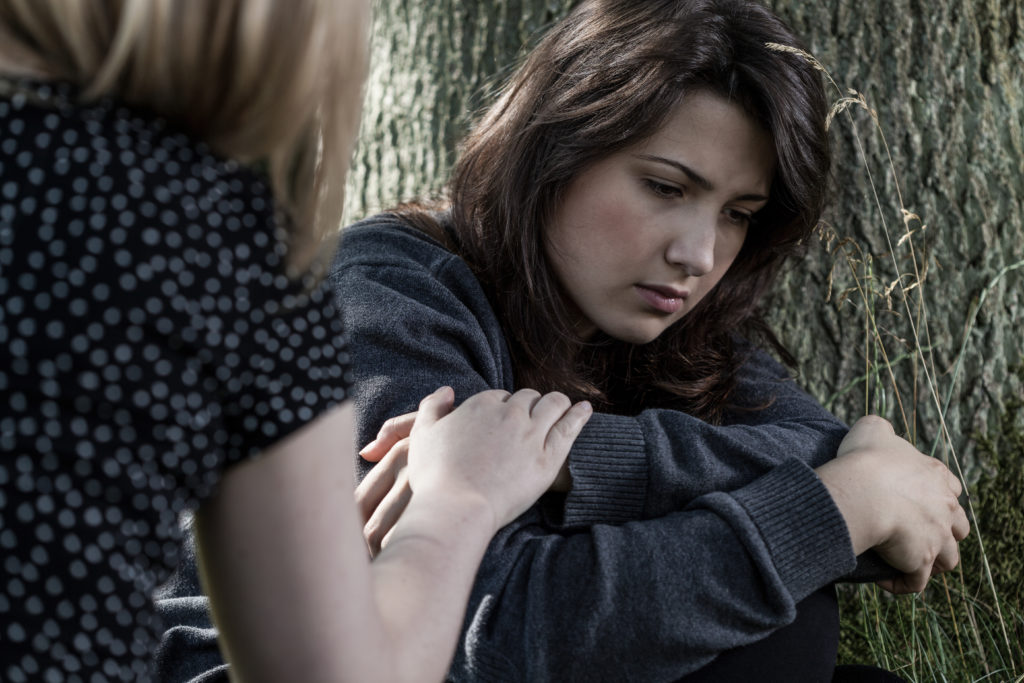 Rape, sexual assault, and sexual abuse are unfortunately all too common. According to the Louisiana Foundation Against Sexual Assault (LaFASA), there are 237,868 incidents of rape in the US every year. Only 40 percent of rapes are reported, and even fewer result in the perpetrator’s conviction. If someone you love has been raped or assaulted, you may wonder how to best help and support them after the experience. You may be unsure of what to say and do. While every situation is different, there are ways you can support a friend or family member through this terrible experience.
Rape, sexual assault, and sexual abuse are unfortunately all too common. According to the Louisiana Foundation Against Sexual Assault (LaFASA), there are 237,868 incidents of rape in the US every year. Only 40 percent of rapes are reported, and even fewer result in the perpetrator’s conviction. If someone you love has been raped or assaulted, you may wonder how to best help and support them after the experience. You may be unsure of what to say and do. While every situation is different, there are ways you can support a friend or family member through this terrible experience.
Taking Immediate Action to Secure a Person’s Safety and Security
If a survivor reaches out to you soon after a rape or sexual assault, you may be able to take steps to help ensure their safety and security. Make sure they are in a safe location or offer to help them get to one. If appropriate, engage the assistance of others. For example, many bar, club, transportation, and hotel workers are trained and experienced in assisting patrons in danger by arranging safe transportation. If a person has been assaulted in one of these locations, encourage them to contact a staff member to ensure their immediate safety, even if they are not ready to report what happened. Sometimes, simply staying on the phone with a person can increase their safety while they remove themselves from a situation of continuing danger. Arranging a safe ride or meeting them somewhere can help diffuse the immediate hazard and provide protection.
Preserving Physical and Evidence and Witness Information
Once the survivor is safe, it can be helpful for a more neutral party to encourage them to preserve as much evidence as possible. Ideally, a survivor should not take a bath or shower, wash, comb their hair, clean any part of their body, or change their clothes. If you are on the scene immediately, help them pack a change of clothing and go to the nearest hospital emergency room. There, medical professionals will conduct a sexual assault forensic investigation (a “rape kit”). This process involves collecting their clothing and examining and treating them for injuries, collecting skin, hair, and blood samples, and testing for pregnancy (if appropriate) or sexually transmitted infections (STIs).
If the rape or assault occurred in their home, other evidence from the scene might be relevant. Try not to move or disturb anything or to clean up any mess. It is important to write down as much information about the occurrence as soon as possible; if your friend talks to you about what happened, take notes or record the conversation (with their permission). If there were people around who may have been witnesses to the events leading up to the occurrence, note their names and contact information.
However, if your loved one has already showered, changed clothes, and thrown away all evidence, or some time has passed, encourage them to see a medical professional for an examination regardless. Panic, fear, shame, and shock are common reactions to a rape or sexual assault, and it is essential not to condescend, shame, or further attack a survivor for their immediate reactions.
Reporting Rape or Sexual Assault
Hospital staff can provide your friend or loved one with resources to report the occurrence to local police. If the survivor is a college student, it may be necessary to report the assault to the campus police or administration. If an attack occurs in the workplace, it might be advisable to report it to human resources or a trusted supervisor.
A rape or sexual assault investigation can be traumatic and invasive. The police investigators and the prosecution team may ask personal, upsetting questions. This can be very difficult for survivors who may suffer emotional upset and upheaval in their personal and professional lives. An individual may not want to pursue criminal charges against their perpetrator—a decision that supportive friends and family members should respect.
However, while a survivor cannot be forced to assist in a criminal prosecution, the ultimate decision to pursue criminal charges against a sexual assault perpetrator lies with prosecutors who represent the state and parish. The investigation may take a long time, and it may not ultimately result in filing charges if the prosecution determines there is insufficient evidence. If your loved one is involved in a prosecution, they will need a lot of emotional and psychological support during the entire process.
Finding Emotional and Psychological Support
Your local hospital, general practitioner, and police department should be able to connect you with local rape/sexual assault crisis centers, which have both professionals and experienced volunteers to help abuse and assault survivors and their loved ones. You might also investigate national resources like RAINN (Rape, Abuse & Incest National Network), the nation’s largest anti-sexual violence organization, and the Rape Crisis Center. These organizations can help survivors connect with professional counselors and therapists and provide resources for recovering and moving forward. Being a supportive friend, partner, or family member can be difficult. Many anti-sexual violence organizations also provide resources for loved ones to deal with their feelings regarding the assault and learn the best ways to support the sexual assault survivor.
Sometimes, survivors of rape or sexual assault may recover compensation from organizations or establishments that may have contributed to creating an unsafe environment or covering up prior abuse. Cases involving churches, employers, civic organizations, and more have successfully enabled sexual assault, rape, and abuse survivors to recover compensation and pursue justice against their attackers. To learn more, contact the experienced attorneys at the Lamothe Law Firm.









